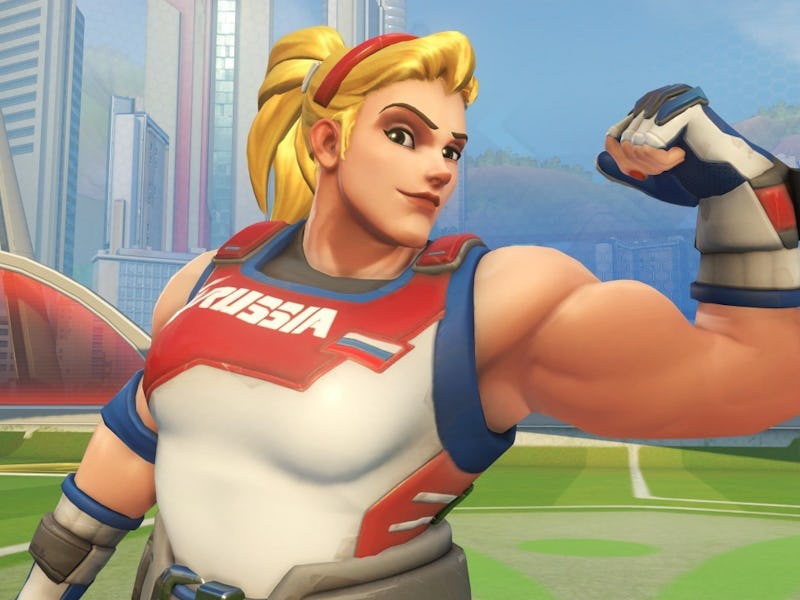Nationalism Is a Dangerous Toy to Play Around With
The unintended consequences of nationalism.

In the age of globalization, what place is there for nationalism in our media and our art? When the broad, often constructed, notion of a national identity drives the narrative of entertainment, it risks rendering that work non-essential, even boring. Just look at Overwatch.
Like many people in my generation, I tend to consider globalization as an egalitarian and almost moral concept. Nations and nationalism sow discord, especially in the post-colonial era where national identity are constructs meant to create fictional boundaries of division. More importantly, there is no single idea of what a nation or a national story is, other than the one constructed by the powers that be.
This could be positive narratives, could be insidious narratives, either way though it’s an overly simplistic way of thinking about things.The important thing in this case is to understand the difference between a culture and a nation. As a nation, the United States of America is just a GDP, population statistics, and a military affixed to a western idea of democracy. As a culture, the U.S. is built upon millions of different stories, ideas, and history. The latter is much more interesting than the former, and it’s why something like the Olympics and Olympic-themed events feel at odds with today’s pop-culture discourse. The aptly timed Summer Games in Overwatch only bolsters my point.
Lucioball
Much has been written about Overwatch’s diverse roster of characters, but it feels like Blizzard never fully acquaints itself with the rich, cultural history of all 22 heroes in Overwatch. It’s why the company feels like it can slap a Native American costume on the Egyptian hero Pharah, despite what it might say about skin color and cultural appropriation. Without taking a side on that debate, it’s at least safe to say that Blizzard’s consideration of national and racial identity isn’t the highest concern when creating characters. They simply design a cool hero, affix a nationality, and do their damnedest to at least be accurate about their cultural representation. It’s “pretty good,” I would say, without going much further than that.
It’s why the recent Summer Games event Blizzard is hosting on Overwatch feels so generic at best, and a little dangerous at worst. For example take Zarya, the character from Russia. Zarya was one of he first heroes announced for Overwatch, and the reception to her character has been largely positive. Here’s a woman character in a video game who breaks several molds of what female video game characters looked like. She’s tall, muscular, tattooed, and sports a fun pink hair color. She’s “Russian” enough, but more than that she’s Zarya.
McCree
Now look at her Russian costume Blizzard released for the Summer Games. Blonde haired and sporting a Russia uniform, she’s been made to fit in with a standard athletic appearance. It normalizes her appearance to fit in with what a representative of “Russia” would look like. Not just her, but the Brazilian Lúcio gets a soccer jersey, and the other characters get a national uniform appropriate to their race. It’s a silly trifle that allows players to win some specially timed loot and play a new mode called Lúcioball (it plays like soccer).
But if you bring in something as nationalistic as an Olympic style of games, something the recent doping scandal in Russia illustrates as a matter of national pride, then you risk drawing unfortunate comparison.
Character outfits
In-game, Zarya is a little bit wary of Overwatch’s robot race known as the “Omnic”. As it stands, it’s an interesting direction for the character who interacts differently with human and robot characters in-game. It adds to her character in a way that makes her complicated to root for. By engaging with something like the Olympics, and regressing her character design to something that appears typically Russian, it’s not hard to see how her character’s racism and national identity makes her appear compared to real world headlines.
Of course not all Russians are racist or homophobic. That’s one narrative often portrayed in the media however, and it’s further proof of the unfortunate consequence of nationalism. So while culture is something to be valued and celebrated, nationalism and nationalist narratives that are continuously perpetrated domestically and abroad complicate things. And while creators and developers should never be discouraged from trying new and fun things, Blizzard’s laissez-faire attitude towards identity can lead to pretty boring — and even downright unfortunate — outcomes.